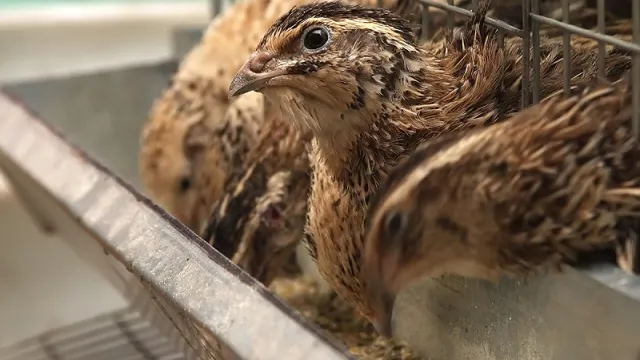Scarcity pushing Kienyeji eggs to the quail moment

Scarcity pushing Kienyeji eggs to the quail moment
The famous Kenyan quail eggs craze came to our home when my father bought into the lucrative story of some salesman, who convinced him to buy a bunch of the birds for their rare and expensive eggs that were in demand for their countless health benefits.
I remember he came home with a box full of tiny brown birds that were handed to me and my younger brother with strict instructions on how to store them in the spare room outside near the kitchen since it was late, before moving them to the chicken house the next morning.
As the anxious birds desperately squealed into the night, they attracted more than just the dream of good fortune. After dinner as I was leaving the house to feed my dogs, I almost tripped when I stepped on something thick and slippery. The deafening scream that followed as I looked down to discover the largest snake coiled at the entrance of the kitchen was loud enough to send my father sprinting from the living room in half a second.
He hit it with a panga and set it on fire with kerosene as my mother, who has a snake phobia comforted me, seeming even more shaken than I was.
Turns out, snakes enjoy eating quail, and on smelling them came out from their hiding place, probably on our kayapa (Kei-apple) fence, for a quick snack.
But unlike the slithery reptile which was about to enjoy a delicacy, the promised fortunes out of these tiny ‘wild birds’ and their eggs never came out.
Read also: Fried for breakfast
Quail prices, their market and and endless list of health benefits were simply hot air. When quail eggs became popular in the Kenyan market, they were praised for their cure. From hypertension, to cancer and even impotence just by eating one or two a day, the stories coming out everyday about their wonder benefits left everyone amazed. This, however, was backed by little to no scientific evidence and empirical market data.
The news of quail farmers making millions from the birds started trending on the internet and the prices began to rise with one egg at the time. At some point in 2014 an egg sold for Kes100.
These speculative prices did not last long as crazed Kenyans and their broker behavior caught up with the market and the prices soon tumbled to Kes30 an egg, then Kes10, leaving hundreds of Kenyans who had invested millions in the business devastated.
Beyond the hyped qualities, the truth was that quail eggs were good and nutritious just like chicken eggs but their pricing was not reflective of the value they were promising.
Quail eggs contain more fat and protein by weight, double the iron and riboflavin, and about one-third more vitamin B12 than chicken eggs. Because of their tiny size, a third the size of chicken eggs, you’ll need more of them to use as a protein source only further adding to the expense. They are a healthy source of protein, but not far superior to chicken eggs nutritionally.
One wishes there could be a hype in the qualities of indigenous kienyeji egg market where a tray is retailing at Kes600 that will bring its quail moment; first attracting new famers looking to make a quick killing and then easing supply and prices to something reasonable.



